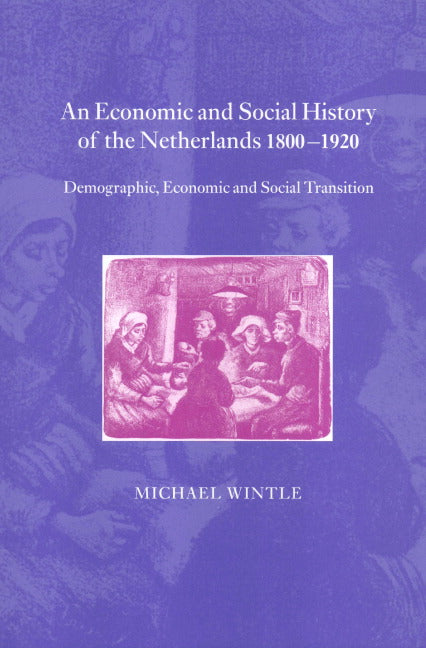Freshly Printed - allow 8 days lead
Couldn't load pickup availability
An Economic and Social History of the Netherlands, 1800–1920
Demographic, Economic and Social Transition
This book provides a comprehensive account of the history of the Netherlands in the 'long' nineteenth century.
Michael Wintle (Author)
9780521782951, Cambridge University Press
Hardback, published 21 September 2000
416 pages, 6 b/w illus. 17 tables
22.9 x 15.2 x 2.4 cm, 0.77 kg
'… a work of reference in English on Dutch economic and social history from the Napoleonic wars to World War II … Wintle's book is lucidly written. It supplies the reader with the relevant information and references in a succinct manner. And Wintle aptly demonstrates his mastery of the literature and the published statistics. Yes, this is the book I needed.' International Review of Social History
An Economic and Social History of the Netherlands, 1800–1920 provides a comprehensive account of Dutch history from the late eighteenth to the early twentieth century, examining population and health, the economy, and socio-political history. The Dutch experience in this period is fascinating and instructive: the country saw extremely rapid population growth, awesome death rates, staggering fertility, some of the fastest economic growth in the world, a uniquely large and efficient service sector, a vast and profitable overseas empire, characteristic 'pillarization', and relative tolerance. Michael Wintle also examines the lives of ordinary people: what they ate, how much they earned, what they thought about public affairs, and how they wooed and wed. This book will be of central importance to Dutch specialists, as well as European historians more generally.
List of plates
List of figures
List of tables
Acknowledgements
General introduction
Part I. Demography and the Health of the Nation: 1. Demographic indicators
2. The condition of the people: public health, diet and nutrition
Part II. Economic Transition: Introduction
3. Economic performance and industrialization: the Dutch debate
4. Factor inputs: labour, capital, materials
5. Economic influences: entrepreneurship, technology and government policy
6. Sectoral analysis
7. Features of demand
8. Economic transition: conclusion
Part III. Social Transition: State, Society, Individual and Nation: Introduction
9. Authority and representation: the citizen and the state
10. Education and welfare: empowerment and protection
11. Loyal subjects: state formation and nation formation
12. Social groups
General conclusion
Bibliography
Index.
Subject Areas: Modern history to 20th century: c 1700 to c 1900 [HBLL], European history [HBJD]


